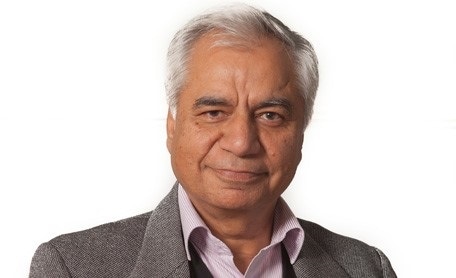Produced by James Ives, MPsych
The global burden of mental health and the need for mental health support services remain major health issues throughout the world. Mental illnesses are often overlooked and not prioritized by governments and other stakeholders.
The World Health Organization (WHO) defines health as “a state of complete physical, mental and social well-being and not merely the absence of disease or infirmity.” There are challenges embedded within this definition as more people with chronic complex co-morbidities are living longer.

© ESB Professional / Shutterstock.com
Mental health, as with any other aspects of health, can be affected by a range of socioeconomic factors that need to be addressed through comprehensive strategies involving access to preventions, treatments and facilitating recovery as well as raising awareness.1
Mental health statistics
Global
- Mental health problems constitute the largest single source of economic health burden in the world, with an estimated global cost of US $2.5 trillion – greater than cardiovascular disease, chronic respiratory disease, cancer, or diabetes individually.2,3
- It is projected to increase to over US $6 trillion by 2030. To put this into perspective, the entire global health spending in 2009 was US $5.1 trillion.2
UK
- Mental health problems are responsible for the largest burden of disease – 28% of the total burden, compared to 16% each for cancer and heart disease.4,3
- One in four adults and one in ten children are likely to have a mental health problem in any year.5,3
- More than half of psychiatric disorders start below the age of 15 and three-quarters below the age of 24.6
- It’s estimated that only a quarter of people with a mental health problem receive ongoing treatment.5,3
Treatment gap
The treatment of mental health is becoming recognized as one of the leading global health challenges today and incorporates a diverse range of conditions affecting all ages and populations, from autism in childhood through to depression in adults and dementia in older people.
The treatment gap, that is the gap between the need for treatment and its provision, exists throughout the world. According to the WHO, between 76% and 85% of people with severe mental health disorders receive no treatment for their disorder in low- and middle-income countries.1
The corresponding range for high-income countries is also significant, with between 35% and 50% receiving no treatment.1 The treatment gap varies depending upon the psychiatric conditions that are most prevalent, social attitudes towards mental health and the availability of resources for treatment.
Stigma and discrimination
Stigma and misconceptions associated with mental disorders contribute to the discrimination and human rights violations experienced by those affected. Discrimination related to mental disorders has been described as having worse consequences than the conditions themselves,7 therefore raising awareness of mental health is fundamental to providing a better life to those with mental illnesses.
Not surprisingly, the stigma related to mental health disorders and the discrimination against those suffering from them acts as a barrier to accessing mental health service. In turn, this delays people seeking care preventing timely diagnosis, treatment and recovery. This type of discrimination can affect an individual’s education, employment, access to care and reduces their capacity to contribute to society.8
Despite a noticeable increase in acknowledgement and awareness of mental health in recent years, stigma remains. While a reduction in the stigma around mental illness can bring about improved knowledge and understanding, it does not necessarily lead to a change in attitude or behavior towards people with mental illness.
As a result, the ability to form any meaningful social pressure to bring about government action can be restricted and Government’s must take a lead in mental health awareness, legislating to improve service provision and reducing discrimination.
Mental health advocacy
Raising the profile of mental health requires advocacy with local communities as well as global experts who can help set the health agenda in countries across the world. Those who recognize the importance of mental health must continuously engage with experts and the media to help make the voices of patient advocacy groups heard, with an emphasis on ‘Think National and Act Local’.
Despite efforts by many to raise the profile of mental health, there is still a lack of international mental health charities and those there are have insufficient resources and struggle to raise funds for their cause.
With many mental health illnesses, it is harder to generate empathy as there may not always be obvious external symptoms. With the allocation of funds of correlated to the marketability of a cause, the lack of captivating and emotive imagery for mental illnesses, can make it difficult for mental health charities and NGOs to raise funds.
Government health reform agendas throughout the world should incorporate mental health. National health policies must meet not only the needs of the individuals diagnosed with mental illnesses, but promote good mental health in all citizens and push for parity of esteem between mental and physical health.
Mental health evolves throughout a person’s life; therefore, governments have the duty to implement preventative measures as well as treatments. The early stages of life present a particularly important opportunity to promote mental health, up to 50% of mental disorders begin before the age of 14 years.1
There are several human rights covenants and conventions urging governments to ensure that persons with mental illnesses experience equality. This includes, the United Nations Convention on the Rights of a Child, which sets out the civil, political, economic, social, health and cultural rights of children throughout the world.
The World Psychiatric Accociation (WPA) led an international survey of 193 countries looking at discrimination against people with mental illness in four areas: the right to vote, the right to marry, the right to inherit property and the right to employment.
Despite the fact that all countries surveyed had signed up to the United Nations Convention on the Rights of Persons with Disabilities Directive, only between 36-40% countries actually had any protection for these rights.9 In response to this, the WPA has developed a Bill of Rights for people with mental illness.
The Bill of Rights reiterates that persons with mental illness, mental disability or mental health problems should not be discriminated against based on their mental health status. These individuals also have the capacity to hold rights and exercise their rights and should, therefore, be treated on an equal basis with other citizens.9
About Professor Dinesh Bhugra
 Dr Dinesh Bhugra is currently President of the World Psychiatric Association, the world’s leading psychiatry organization. He is Emeritus Professor of Mental Health and Diversity at the Institute of Psychiatry at King’s College London. He is past President of the Royal College of Psychiatrists.
Dr Dinesh Bhugra is currently President of the World Psychiatric Association, the world’s leading psychiatry organization. He is Emeritus Professor of Mental Health and Diversity at the Institute of Psychiatry at King’s College London. He is past President of the Royal College of Psychiatrists.
- He was awarded a CBE in 2012 for his contribution to psychiatry within the UK and is affecting change and policy within the UK and also international territories.
- A prolific author/editor of over 30 books, 90 book chapters, 100 editorials and over 180 papers. ‘Textbook of Cultural Psychiatry’ won the 2012 Creative Scholarship Award from the Society for the Study of Psychiatry and Culture and was commended in the 2008 BMA Book Awards. ‘Mental Health of Refugees and Asylum Seekers’ book was highly commended in the 2011 BMA Awards
- Editor of 12 books in the past five years, including more than five on aspects of cultural psychiatry
- Author of 300 papers published in journals;130 Editorials, over 150 chapters; he edits 3 international journals
- He led an international research project covering recruitment of medical students into psychiatry across 23 countries, funded by the World Psychiatric Association, report published
- He is leading on a major research programme on international social discrimination against individuals with mental illness assessing 4 dimensions of social, economic, political and personal discrimination which will be basis of a year-long anti-discrimination programme.
- Launched the World Psychiatric Association’s World Mind Matters Day in September 2015, a global campaign with the main goal of achieving fairness in mental healthcare for all
- As President, he has initiated programmes on migrant mental health, gender based domestic violence, child abuse. Prisoner mental health care, mental health of underserved populations e.g. LGBT, intellectually disabled and elderly. He has led on Round Tables on the topics of Migration; radicalization and early interventions
The World Psychiatric Association
The WPA is the world’s leading psychiatry organization. It is an association of national psychiatric societies, which aims to enhance the knowledge and skills necessary to work effectively in the field of mental health and in the care of people with mental illness. It has 139 member societies from 117 countries representing over 225,000 psychiatrists.
The WPA has more than 72 individual scientific sections that cover almost every aspect of psychiatry. The purpose of the sections is to collect, analyze and disseminate information on research, training and services in the specific areas of psychiatry and mental health that they represent.
The WPA works to achieve the objectives through meetings, research, education, publications and collaboration with other health/ mental health and government organizations. Visit https://www.wpanet.org/ for further information.
Further Reading
Reference
- World Health Organization. Mental Health Action Plan 2013-2020. Available at: https://apps.who.int/iris/bitstream/10665/89966/1/9789241506021_eng.pdf?ua=1. [Last accessed June 2017]
- Insel, T. The global cost of mental illness. [Blog] Director’s Blog. Available at: https://www.nimh.nih.gov/. [Last accessed June 2017]
- Mental Health Foundation. Fundamental Facts About Mental Health 2015. Available at: https://www.mentalhealth.org.uk/sites/default/files/fundamental-facts-15.pdf. [Last accessed June 2017]
- Ferrari, A., Charlson, F., Norman, R., et al Burden of Depressive Disorders by Country, Sex, Age, and Year: Findings from the Global Burden of Disease Study 2010. PLoS Med. 2011;10(11), p.e1001547
- The Health & Social Care Information Centre. Adult psychiatric morbidity in England: The results of a household survey. Available at: https://content.digital.nhs.uk/catalogue/PUB02931/adul-psyc-morb-res-hou-sur-eng-2007-rep.pdf. [Last accessed June 2017]
- Royal College of Psychiatrists. No health without public mental health: the case for action. 1010. Available at: https://www.rcpsych.ac.uk/pdf/Position%20Statement%204%20website.pdf [Last accessed June 2017]
- Thornicroft G, Mehta N, Clement S, et al. Evidence for effective interventions to reduce mental-health-related stigma and discrimination. The Lancet. 2016;387(10023):1123-1132.
- Ngui EM, Khasakhala L, Ndetei D, et al. Mental disorders, health inequalities and ethics: A global perspective. Int Rev Psychiatry. 2010;22(3):235-244.
- Bhugra D. Mental illness adSocial justice for people with mental illness. Int Rev Psychiatry. 2016;28(4):335-419.
Disclaimer: This article has not been subjected to peer review and is presented as the personal views of a qualified expert in the subject in accordance with the general terms and condition of use of the News-Medical.Net website.